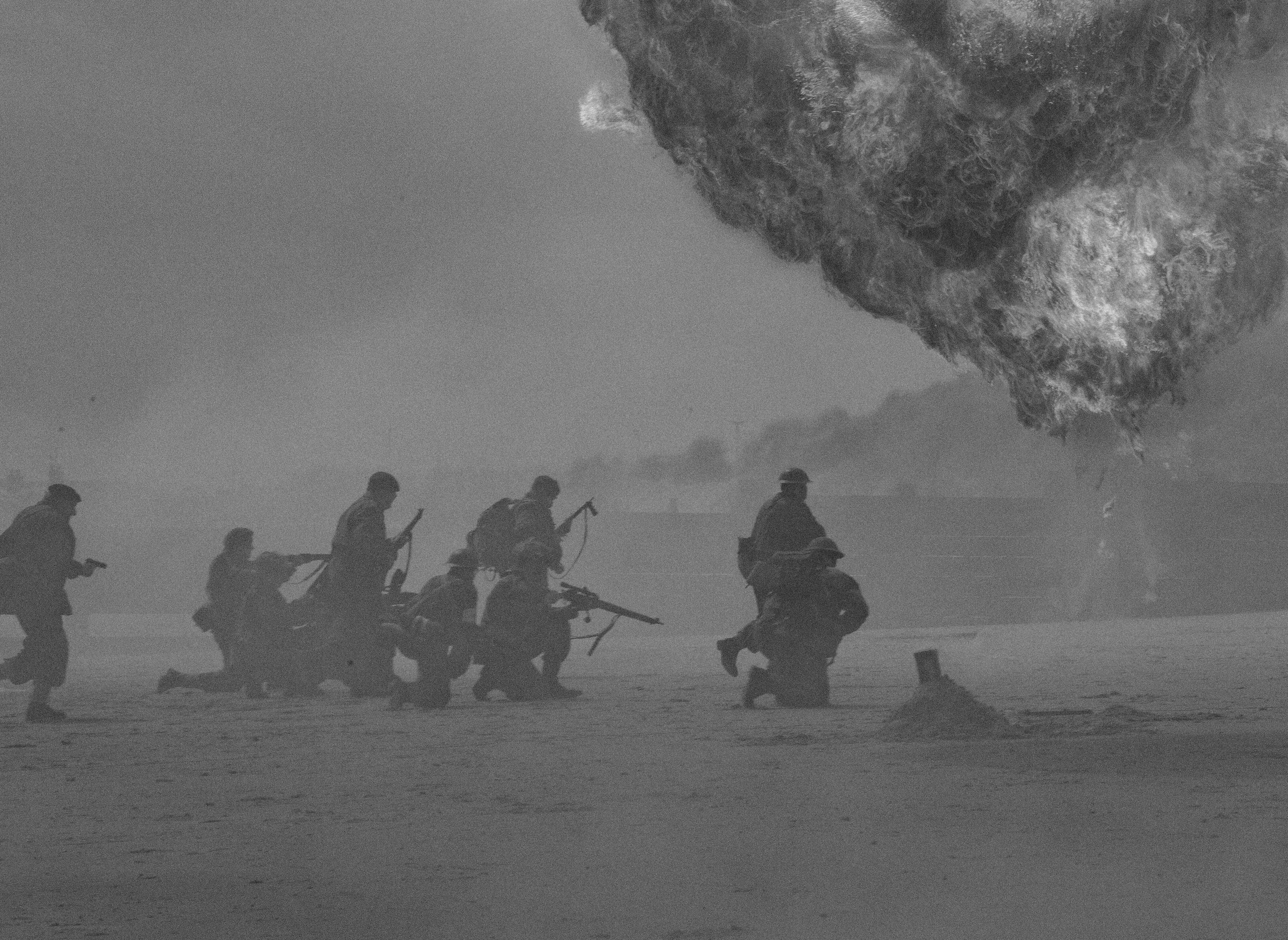
Lodestone General Election Note - Campaign Week 2
Normandy Beaches – A Political Note from Lodestone Communications Chairman David Wild
The role that D-Day plays in the British psyche and in the West more generally is that of a blood sacrifice for freedom. The Second World War and its aftermath still largely defines the contours of Western geopolitical strategy – the defeat of Germany, the start of the Cold War and creation of NATO, followed by the Franco- (West) German alliance and the EU, and the continued US commitment to European security – were all dependent on the sacrifice on the beaches of Normandy. This emotional as well as political symbol of citizen armies of ordinary lads storming ashore is a wellspring of political capital for use in election propaganda, as well as Hollywood film. As luck would have it Rishi Sunak is the British Prime Minister who could take advantage of the prestige that will come from hobnobbing with world leaders in the presence of very old veterans and now their quite old sons and daughters, in the lovely sunshine in Normandy. Both Biden and Trudeau travelled there because of the potency of the myth.
But Rishi Sunak managed to turn this golden opportunity into a golden gaffe by leaving early. David Cameron did not leave early. Keir Starmer did not leave early. In fact, Starmer appeared to look like a Prime Minister in waiting and Lord Cameron looked at what he could have won. Current polling has it that the only demographic with the Tories ahead is the 65+ cohort, exactly the people who will be most upset at Sunak’s lack of emotional intelligence. Now Sunak has had to apologise. The competition for the worst moment in Sunak’s campaign is now becoming a crowded field.
In contrast, Keir Starmer had a whole day on Monday burnishing his credentials as ‘sound on Defence’, and with 14 ex-military candidates standing for Labour, many in winnable seats, this will represent the largest influx of military veterans into the PLP since the second world war generation. This is a real and important development in Labour becoming a plausible natural governing party.

In the News
In the second full week of the General Election campaign, voters were introduced to the two main party leaders in the first TV debate of the campaign. In a snap YouGov poll straight after the debate, viewers were split equally on who performed better with 51% saying Sunak and 49% Starmer. Given the stalemate in public perception, this can probably be penned as a win for Starmer - it hasn’t moved the dial, yet. Starmer’s goal to reinforce the central message that the party has changed and that he is a safe pair of hands has not been tarnished. Indeed, a Savanta poll released the day after the debate found the Labour leader actually beat Rishi Sunak by 44% to 39%.
Whilst Starmer appeared more confident over NHS waiting lists and the cost of living crisis – quite confidently saying in contrast to Sunak that he wouldn’t use private healthcare – the Prime Minister appeared stronger over tax and spend. During the debate, he repeated the mantra that Labour would increase taxes by £2000 per person on twelve occasions– a charge Starmer did not stand up to until the end of the debate. Just hours after the debate ended, it was revealed that Permanent Secretary to the Treasury, James Bowler wrote to Labour on Monday saying that the £2000 attack “should not be presented as having been produced by the civil service” – inferring that Sunak’s charge had flimsy party-political foundations. In the days since, Conservative Ministers have doubled down on the line in public appearances, despite widespread criticism.
On Monday, Labour ran their ‘Defence Day’ on traditionally Tory turf at the Fusilier Museum in Bury. Speaking alongside Prospective Parliamentary Candidate for North East Derbyshire Louise Jones – who would be the Party’s first female military veteran MP if elected – and Shadow Defence Secretary John Healey MP, Starmer announced a “triple lock” for the nuclear deterrent, including a commitment to delivering four new ballistic submarines, maintaining the continuous-at-sea deterrent and providing all the necessary upgrades for the boats to continue their patrols. As well as his ‘triple lock’ commitment, Starmer also announced that his Party would roll out a Strategic Defence review which would assess fully the state and capabilities of the UK’s Armed Forces and commit that his party would spend 2.5% of GDP on Defence. His commitments demonstrate the extent of his intention for Labour to be perceived as the Party of the armed forces, something unforeseeable during his predecessor’s tenure.
Similarly, on Monday, Nigel Farage revealed that he would take over as leader of Reform UK from Richard Tice and, more importantly that he would stand in the upcoming election. The following day, Farage pitched up in his target constituency Clacton – a seat his former party, UKIP has held before – to formally launch his candidacy. Crucially, during his announcement Farage ruled out any kind of electoral pact with the Conservatives, saying “There are no circumstances whatsoever” where it could happen. It is expected that the announcement will give Reform’s campaign a boost after what was a slow start and could mean the party claims as many as four seats, including Clacton. More damagingly, YouGov predicts that Farage’s candidacy alone could lose the Tories another 60 seats by splitting the right-wing vote – the vast majority of which would turn red. Another YouGov poll on Wednesday put Farage’s Party just 2 points behind the Conservatives on 17%.
Polling Update
On Monday, Sky News revealed an MRP poll by YouGov which made incredibly grim viewing for the Conservatives putting Labour on 43% to the Tories’ 25% and the Liberal Democrats on 11%. In terms of seats, this would put Labour on 422 compared to the Tories on 140 - the largest majority for a government since 1935. Notable figures such as Chancellor of the Exchequer Jeremy Hunt (Godalming and Ash), Defence Secretary Grant Shapps (Welwyn Hatfield) and Veterans Minister Johnny Mercer (Plymouth Moor View) would all lose their seats.
Lodestone’s General Election Hub predicts a 17-point lead for Labour, with them gaining 215 seats from the Conservatives. It is continually updated with key candidate announcements and polling insights.
Scores on the doors: insights from the campaign trail
Overheard by a member of the Lodestone team - a Lib Dem Political Adviser on the campaign trail said: “Places like this remind you that London is the only place worth living in in the UK”
On Monday, Secretary of State for Education Gillian Keegan took time out of her busy schedule to launch fellow Conservative MP Flick Drummond’s campaign next to the King Alfred Statue in Winchester. The only problem: she turned up a day early and no one was there.
Tuesday night’s leaders' debate was filmed live from HQ2 at Dock10 – the very same studio where ITV’s Naked Attraction is usually filmed.
To find out more predictions on who is set to win, or lose their seat, visit Lodestone’s General Election Hub